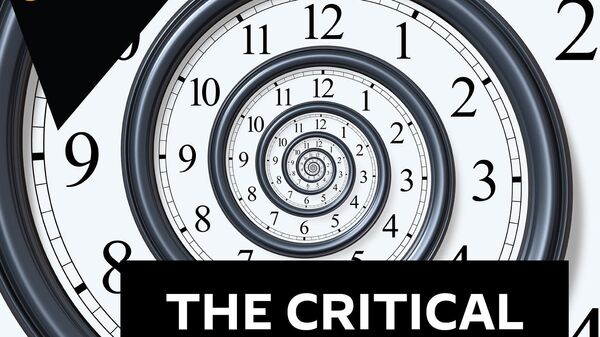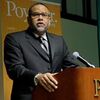It's Friday, so that means it's panel time.
British police entered the Ecuadorian Embassy in London early Thursday, forcibly removing WikiLeaks founder Julian Assange on a 2012 charge of failing to surrender to the court. Later that day, he was found guilty of that charge at the Westminster Magistrates' Court. Now the real battle ensues: will he be extradited to the US, bringing his seven-year stint in the embassy to a dramatic close? Assange entered the embassy June 19, 2012, to avoid extradition to Sweden over a sexual assault case that has since been dropped and remained there in exile for six years, nine months and 24 days, or 2,488 days from start to end. What's been going on in London around this issue?
It was two days of questions for US Attorney General William Barr. With the Russia investigation complete, Barr said he was preparing to review "both the genesis and the conduct of intelligence activities directed at the Trump campaign," including possible improper "spying" by American intelligence agencies. Is this really news, or is it more political theater? Should we be concerned that the FBI and or other intelligence agencies in this country opened an intelligence investigation into a US presidential candidate?
With all votes counted, Israeli Prime Minister Benjamin Netanyahu's fifth election win is confirmed. After a full day of rechecking, Likud gained a seat to outscore Benny Gantz's Blue and White alliance, 36-35, United Torah Judaism lost a seat, and Netanyahu's path to a majority coalition is clear. Netanyahu was confirmed as the big winner of Israel's general elections on Thursday night, when the Central Elections Committee published the completed tallies of Tuesday's election, a full 60 hours after the polling stations closed. Israeli voters "have said no to peace and yes to the occupation," Saeb Erekat, chief Palestinian negotiator, said Tuesday night. Thanks to enthusiastic support from the Trump administration, Netanyahu has been emboldened to pursue right-wing policies — he now says that if he wins, he will annex the West Bank, home to around 2.5 million Palestinians. Gantz called this pledge "irresponsible." While many observers brushed it off as campaign rhetoric, the Trump administration's unwavering support makes this a real possibility, believes Jake Walles, who served as US consul general in Jerusalem from 2005 to 2009 and is now a fellow at the Carnegie Endowment for International Peace.
Holden Matthews, the 21-year-old man accused of burning three historically black churches in Louisiana, was influenced by "black metal," police say — a music genre sometimes tied to organized hate.
Matthews engaged in a conversation about Varg Vikernes on Facebook. Vikernes is a musician who is linked intimately to National Socialist Black Metal (NSBM), a subgenre within black metal that is explicitly racist and fascist in nature. Vikernes, who is Norwegian and founded the band Burzum, burned down three historically significant churches in his homeland during the 1990s. He also murdered a guitarist for the black metal band Mayhem. From prison, Vikernes expressed views closely aligned with neo-Nazism, even though he objected to that term. Anders Breivik, the Norwegian far-right terrorist who murdered 77 people, including children, during a 2011 rampage, mailed Vikernes his manifesto before his arrest. In a 2012 blog post, Vikernes took issue with Breivik's methods and wrote that Breivik should kill himself, and argued there were more constructive ways to deal with "internationalists lead [sic] by their Jewish masters." Matthews, the son of a Louisiana sheriff's deputy, is in St. Landry Parish jail. He's charged with three counts of simple arson of a religious building. The churches Matthews allegedly burned were the St. Mary Baptist Church in Port Barre, the Greater Union Baptist Church in Opelousas and the Mount Pleasant Baptist Church in Opelousas. The fires occurred on March 26, April 2 and April 4. It is unclear if Matthews allegedly chose the churches because of their connection to the black community.
GUESTS:
Lee Stranahan — Co-host of Fault Lines on Sputnik Radio.
Jim Kavanagh — Political analyst and commentator and editor of The Polemicist.
Caleb Maupin — Journalist and political analyst who focuses his coverage on US foreign policy and the global system of monopoly capitalism and imperialism.
We'd love to get your feedback at radio@sputniknews.com


